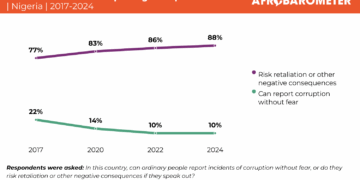By Ebi Kesiena
Rights groups and medical professionals have applauded a landmark ruling by Kenya’s High Court declaring the criminalisation of attempted suicide unconstitutional.
Under Kenya’s current penal code, attempting suicide is a misdemeanor punishable by a fine or up to two years in prison. However, Friday’s ruling deemed the law discriminatory and a violation of constitutional rights, representing a significant step forward in mental health reform.
The court directed Kenya’s Attorney General to initiate the process of repealing the relevant section of the penal code.
The Kenyan National Commission on Human Rights (KNCHR), a co-petitioner in the case, hailed the judgment as a “significant milestone” for mental health advocacy. The commission stated that the ruling promotes awareness, fights stigma, and encourages open discussions on mental health challenges.
Dr. Chitayi Murabula, President of the Kenya Psychiatric Association, celebrated the decision, calling for the immediate release of individuals incarcerated for attempted suicide. He also urged lawmakers to fast-track a pending bill that seeks to decriminalise broader aspects of mental illness.
The High Court’s decision aligns with growing mental health advocacy across Africa. According to the World Health Organization (WHO), Africa has an annual suicide rate of 11 per 100,000 people—higher than the global average of nine. Alarmingly, for every suicide, an estimated 20 attempts occur, underscoring the need for urgent intervention.
Kenya has been making strides in addressing mental health. In 2022, the government launched a mental health initiative in response to troubling statistics, including a 2019 World Bank report estimating six suicides per 100,000 people annually.
Although the ruling is a major victory, full decriminalisation will depend on legislative action. Advocates stress the importance of reforming Kenya’s mental health policies to prioritise care and support over punishment for vulnerable individuals.


































